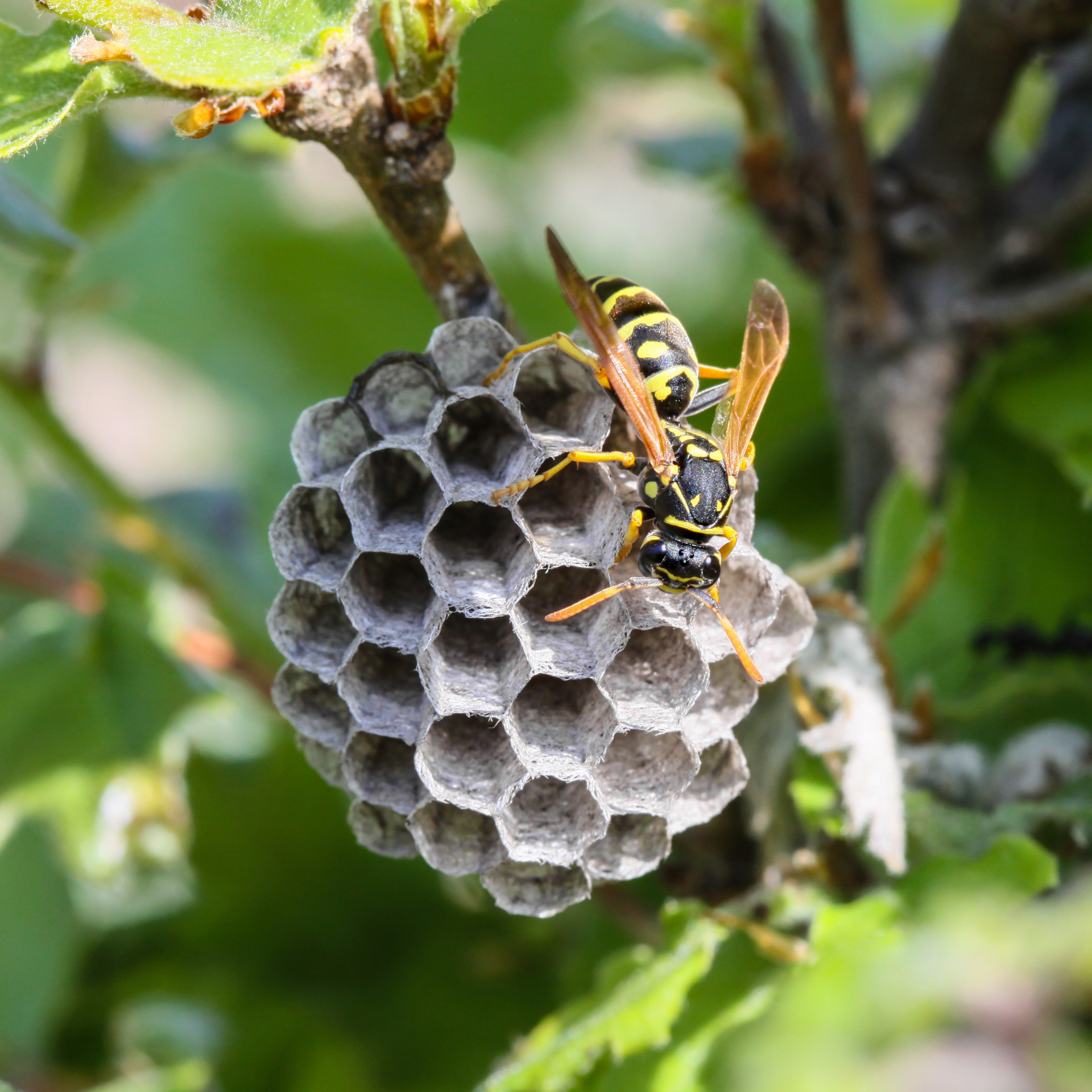Effective Wasp Control: Protect Your Home and Family
Wasp Control Services: Protect Your Home and Family from Stinging Insects
Wasps can be an unwelcome and potentially dangerous presence around your home. Their aggressive nature and painful stings pose a serious risk, especially for those with allergies. At SAPPHIRE Pest Control, we offer professional wasp control services to safely remove nests and prevent future infestations, giving you peace of mind.
Why Is Wasp Control Important?
Wasps are more aggressive than other stinging insects like bees, and they can become highly territorial when their nests are disturbed. A single wasp can sting multiple times, and for people with allergies, even one sting can lead to a medical emergency. Removing wasps and their nests without professional help can be dangerous, so it's important to call experts who have the proper training and equipment.
Common Signs Of A Wasp Infestation
Knowing the signs of a wasp infestation can help you act before the problem becomes worse. Look for these key indicators:
- Visible nests: Wasps build their nests in sheltered areas, such as under eaves, in attics, trees, or wall voids. Their nests are typically papery and can grow quite large.
- Increased wasp activity: If you see a large number of wasps flying around your yard or home, especially near entry points, there’s likely a nest nearby.
- Buzzing sounds: Wasps inside walls or attic spaces often create a distinctive buzzing sound, signaling a hidden nest.
Contact Us
We will get back to you as soon as possible
Please try again later
How We Handle Wasp Control
At SAPPHIRE Pest Control, our technicians use a safe and effective approach to eliminate wasps and their nests. Here’s how we manage wasp infestations:
- Inspection: We thoroughly inspect your property to locate all active wasp nests, including any hidden nests in hard-to-reach areas like walls or attics.
- Treatment: We use specialized tools and treatments designed to eliminate the wasps quickly and safely, minimizing the risk of stings during the process.
- Nest Removal: Once the wasps have been neutralized, we carefully remove the nest to prevent new wasps from taking over the space.
- Prevention: After the removal, we offer advice on how to keep wasps from returning, including sealing potential entry points and maintaining outdoor areas to deter nest building.
Are Wasp Treatments Safe?
Our wasp control treatments are safe for your family, pets, and home. We use targeted products and techniques to focus solely on the wasp infestation, leaving your living spaces secure. Once the treatment is applied and the area is cleared, your yard will be safe for use again.
Types of Wasps We Treat
Different species of wasps can infest homes, and each requires specific treatment methods. Some of the most common types of wasps we handle include:
- Yellowjackets: These wasps are highly aggressive and often build nests underground or in wall voids.
- Paper Wasps: Known for their umbrella-shaped nests, paper wasps tend to be less aggressive but can still sting if threatened.
- Hornets: A larger and more aggressive type of wasp, hornets build large, enclosed nests that can grow to significant sizes.
Protect Your Home with Professional Wasp Control
If you’ve noticed increased wasp activity around your home or discovered a nest, don’t try to handle the problem on your own. Let SAPPHIRE Pest Control take care of it safely and effectively. Contact us today to schedule a wasp control service and keep your home safe from stinging pests.
Call Us Today at
903-456-7816 or
On average, there are over 500,000 emergency room visits each year in the U.S. due to stings from wasps, bees, and hornets.
- A single wasp queen can start a nest in the spring, and within 4 to 6 weeks, that nest can house hundreds of worker wasps.
- Wasps are most active during the warmer months, with peak activity occurring between July and October in most regions of the U.S.
20%
of all wasp nests found on homes are paper wasps that prefer to build their nests under eaves.
10%
of the population will experience a severe allergic reaction (anaphylaxis) to wasp stings, which can be life-threatening.
90-100
deaths per year in the U.S. are attributed to stings from wasps, bees, and hornets combined.

Why are wasps around my home?
Wasps are attracted to food sources such as sugary drinks, fruit, and garbage, as well as sheltered areas like eaves, attics, and trees for building their nests. In late summer and fall, they become more aggressive as they search for food to sustain their colonies.
Are wasps dangerous?
Yes, wasps can be dangerous, especially if they feel threatened. They can sting multiple times and will defend their nests aggressively. For those allergic to stings, even a single sting can result in a severe allergic reaction, such as anaphylaxis, which requires immediate medical attention.
How can I prevent wasps from nesting around my home?
You can reduce the chances of wasps nesting by sealing entry points such as cracks and gaps in walls, removing food sources like open garbage cans, and keeping sugary drinks and food covered when outdoors. Regularly trimming shrubs and trees can also help prevent nesting.
Do wasp nests return after removal?
Once a wasp nest is removed, the same nest will not be reused by wasps. However, if the conditions around your home remain favorable, wasps may attempt to build a new nest nearby. Regular maintenance and sealing entry points can help prevent re-infestation.
Are your wasp treatments safe for my family and pets?
Yes, our wasp treatments are safe for your family and pets once dry. We use targeted methods that eliminate the wasp threat while keeping your home safe and secure.

